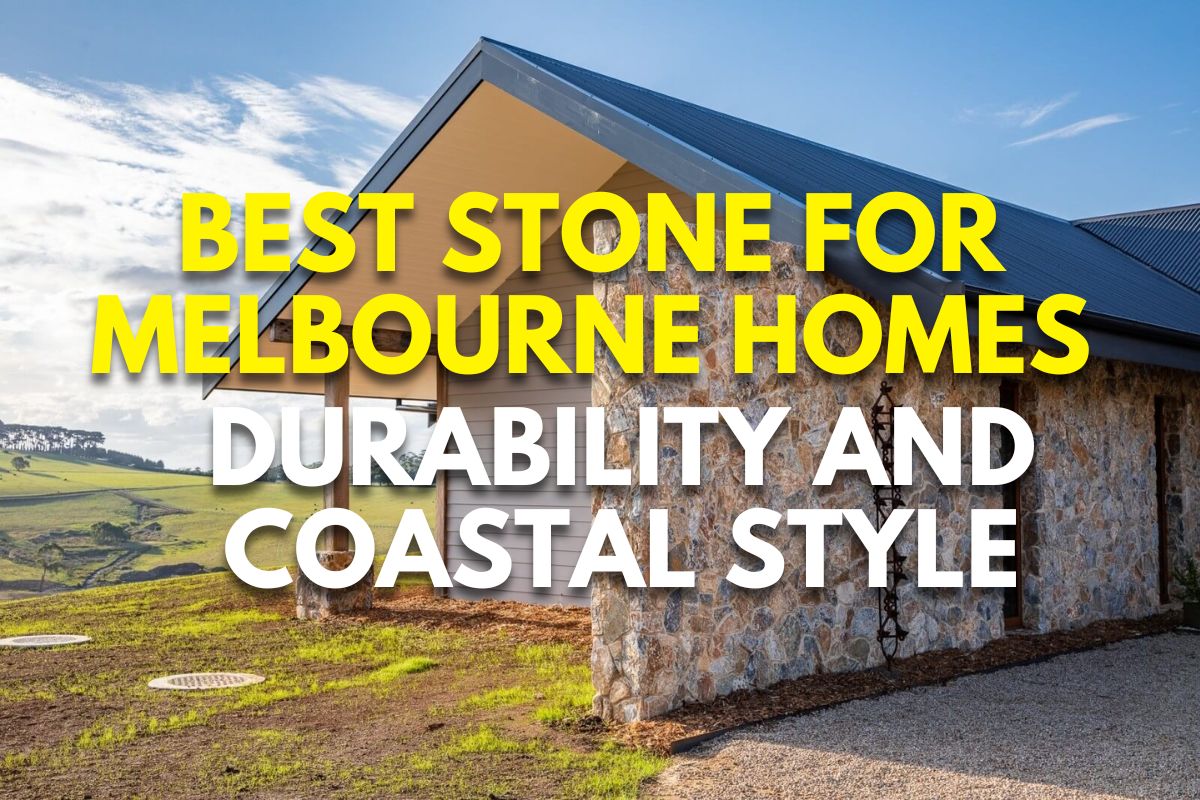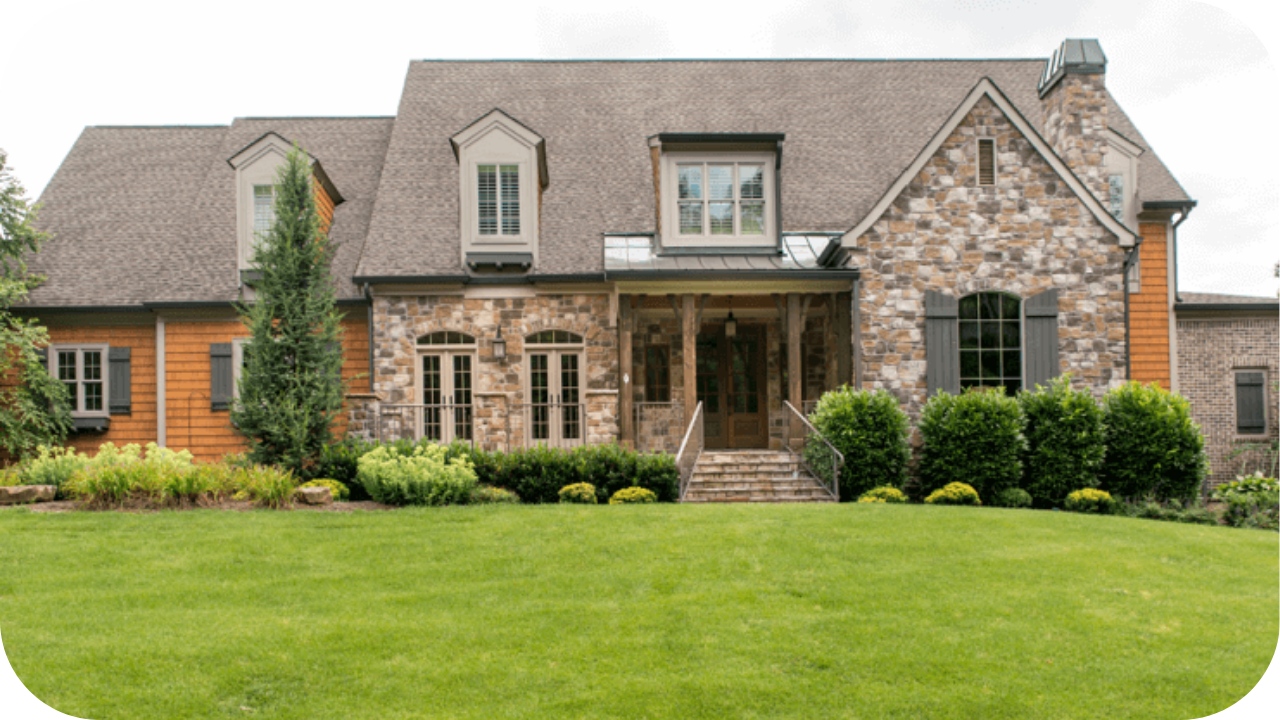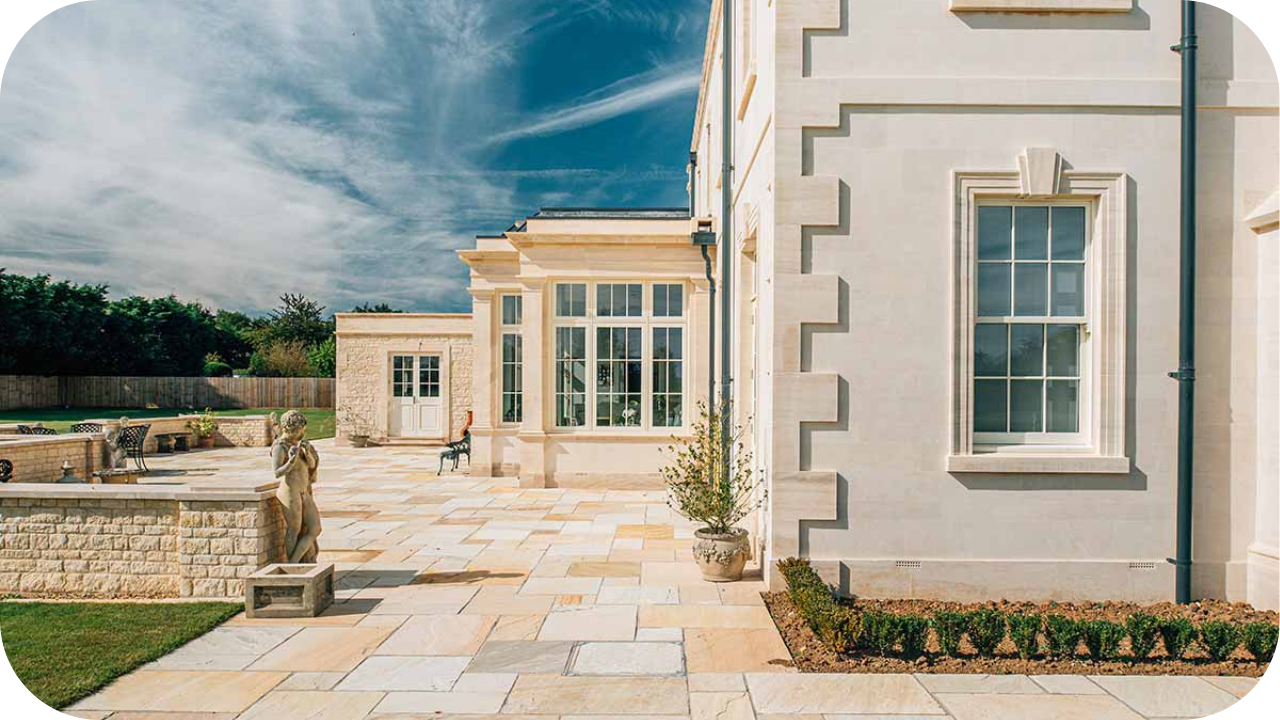
Choosing the right stone for your Melbourne home can be a daunting task, especially when you need to strike a balance between durability and coastal aesthetics.
With the region’s harsh coastal climate and ever-changing design trends, finding a material that can withstand the elements while complementing your home’s style can be challenging.
However, by exploring the right stone options, you can create a beautiful and long-lasting outdoor living space that seamlessly blends with Melbourne’s coastal charm.
Understanding Durability in Melbourne’s Climate
Melbourne’s coastal climate presents unique challenges that demand careful consideration when selecting building materials, especially stone. The region is known for its high moisture levels, temperature fluctuations, and intense UV exposure, all of which can take a toll on the durability of construction materials over time.
Climate Challenges:
- Melbourne’s unique climate factors include high moisture levels, significant temperature variations, and intense UV exposure.
- These factors can adversely affect the durability of building materials, including stone. Moisture can lead to mold, mildew, and efflorescence, while temperature fluctuations can cause expansion and contraction, resulting in cracks or fissures. UV exposure can also cause fading and discoloration of certain stone types.
Importance of Durability:
- Durability is crucial for Melbourne homes, especially in coastal areas, as it ensures the longevity and resilience of the structure against the region’s harsh climate conditions.
- Choosing durable stone options can enhance the home’s resistance to moisture, temperature changes, and UV radiation, reducing the need for costly repairs or replacements over time.
- Durable stone choices not only protect the home’s exterior but also its interior surfaces, maintaining their aesthetic appeal and structural integrity for years to come.
Coastal Style in Melbourne Homes
Defining Coastal Style:
- Coastal style is characterized by a relaxed, breezy ambiance that incorporates natural elements like sand, sea, and sky colors (blues, whites, natural hues), nautical accents, weathered textures, and organic materials.
- Incorporating coastal elements into Melbourne homes is crucial due to the city’s proximity to the ocean. This style creates a harmonious blend between indoor and outdoor living spaces, seamlessly merging the home with its coastal surroundings.
Coastal Elements in Stone Selection:
- Stone plays a vital role in achieving a coastal aesthetic in Melbourne homes. The right stone choices can contribute to the overall ambiance and complement the coastal style with their natural beauty and texture.
- Key features of stones that complement the coastal style include earthy tones and organic patterns (as seen in limestone, travertine, and sandstone), rough or textured finishes that mimic weathered coastal surfaces, and natural variations that provide a sense of authenticity and connection with the surroundings.
Factors to Consider When Choosing Stone for Melbourne Homes
When selecting stone for your Melbourne home, it’s essential to consider several factors to ensure a harmonious blend of durability, coastal aesthetics, and functionality. Here are some key considerations:
- Climate Resilience: Melbourne’s coastal climate can be harsh on building materials, with high moisture levels, temperature fluctuations, and intense UV exposure. Choose stones that are known for their resistance to these elements, such as granite, quartzite, or certain types of limestone, to ensure long-lasting performance.
- Aesthetic Appeal: The stone you choose should complement the coastal style you wish to achieve. Opt for materials with warm, earthy tones, organic patterns, and textures that evoke a sense of natural beauty and weathered charm, such as travertine, sandstone, or coral stone.
- Indoor vs. Outdoor Use: Different stones may be better suited for indoor or outdoor applications. For outdoor areas like patios, pools, or walkways, prioritize low-maintenance options that withstand harsh weather conditions. For interior spaces, consider stones that add warmth and character while being easy to clean and maintain.
- Maintenance Requirements: Some stones require more upkeep than others. Porous materials like limestone or sandstone may need regular sealing to prevent staining and moisture absorption, while harder stones like granite or quartzite are more low-maintenance.
- Budget and Availability: Stone prices can vary significantly based on the type, quality, and rarity. Research the availability and cost of different stone options to find a balance between your desired aesthetic, durability requirements, and budget constraints.
Recommended Stones for Melbourne Homes
When it comes to selecting the best stones for Melbourne homes, several options stand out for their ability to withstand the region’s coastal climate while complementing the desired coastal aesthetic. Here are some highly recommended stones:
- Travertine: This natural stone is known for its earthy tones, ranging from warm beiges to rich terracottas, making it an excellent choice for achieving a coastal vibe. Travertine’s porous nature allows for a subtle, aged appearance that evokes the weathered charm of coastal environments. Additionally, it’s a relatively durable option, resistant to moisture and temperature changes.
- Limestone: With its soft, organic patterns and warm hues, limestone can add a sense of natural beauty to Melbourne homes. Certain varieties, like the locally sourced Gosford Sandstone, offer excellent durability and resistance to the coastal climate. However, some types of limestone may require regular sealing to prevent staining and erosion.
- Granite: If durability is your top priority, granite is an exceptional choice. This hard, dense stone is highly resistant to moisture, temperature fluctuations, and UV exposure, making it ideal for both indoor and outdoor applications in Melbourne’s coastal environment. Granite’s versatility in colors and patterns allows for a range of coastal-inspired designs.
- Quartzite: Quartzite combines the natural beauty of stone with exceptional durability and low maintenance requirements. Its resistance to scratches, stains, and moisture makes it a practical choice for Melbourne homes, while its earthy tones and subtle veining can contribute to a coastal aesthetic.
Case Studies and Examples
Case Study 1: Travertine Patio in Brighton Beach
Project: Beachfront home in Brighton Beach, Melbourne
Stone Used: Travertine
The travertine patio in this Brighton Beach home is a stunning example of how the right stone choice can contribute to both durability and coastal style.
The warm, earthy tones and subtle textures of the travertine create a relaxed, breezy ambiance that perfectly complements the coastal surroundings. The travertine’s natural resistance to moisture and temperature changes ensures longevity, making it a practical choice for this seaside location.
Throughout the home, natural stone accents and weathered finishes were incorporated to reinforce the coastal aesthetic.
The travertine patio seamlessly blends with these design elements, creating a cohesive and inviting outdoor living space that celebrates the beauty of the nearby beach.
Case Study 2: Granite Pool Surrounds in Mornington Peninsula
Project: Waterfront property in Mornington Peninsula, Melbourne
Stone Used: Granite
This luxurious waterfront property on the Mornington Peninsula showcases granite’s exceptional durability and versatility in its outdoor pool area.
The pool surrounds, including coping and paving, feature granite stone, providing a low-maintenance surface that can withstand harsh coastal conditions.
The granite’s rich, earthy tones complement the home’s coastal-inspired design, while its resilience ensures longevity and easy maintenance.
The pool area seamlessly integrates with the overall aesthetic, creating a cohesive and inviting outdoor living space that celebrates the natural beauty of the surrounding coastal environment.
Case Study 4: Quartzite Flooring in Portsea
Project: Residential flooring installation in Portsea, Melbourne
Stone Used: Quartzite
In this Portsea home, the owners opted for quartzite flooring throughout the living areas. The quartzite’s subtle veining and warm hues contribute to the coastal ambiance, while its exceptional durability and low-maintenance requirements make it an ideal choice for a high-traffic area.
The quartzite flooring seamlessly integrates with the home’s overall coastal design, creating a cohesive and timeless look.
The natural beauty of the stone and its resistance to scratches, stains, and moisture ensure that the floors will retain their aesthetic appeal and functionality for years to come, even in the coastal environment.
Maintenance Tips for Coastal Stone
While the recommended stones for Melbourne homes are known for their durability and resilience against the coastal environment, proper maintenance is crucial to ensure their longevity and aesthetic appeal.
Here are some essential tips for maintaining and caring for stone surfaces in Melbourne’s coastal climate:
- Regular Cleaning: Outdoor stone surfaces can accumulate dirt, salt, and other debris from the coastal air and environment. Establish a routine for gentle cleaning using a pH-neutral cleaner and a soft-bristle brush. Avoid harsh chemicals or abrasive materials that can damage the stone.
- Sealing: Many stones, such as travertine, limestone, and sandstone, are porous and can absorb moisture and stains. Applying a high-quality sealer can help protect the stone from water absorption, salt damage, and discoloration. Consult a professional for the appropriate sealer and application instructions for your specific stone type.
- Salt Mitigation: The presence of salt in the air can lead to efflorescence, a white, powdery residue on stone surfaces. To prevent this, ensure proper drainage and ventilation around the stone installation. Additionally, consider using a salt-resistant sealer or applying a salt remover solution periodically.
- UV Protection: Prolonged exposure to the sun’s UV rays can cause fading or discoloration in certain stone types. Consider applying a UV-resistant sealer or using shade structures to protect outdoor stone surfaces from direct sunlight.
- Weathering and Erosion: Over time, coastal winds and weather can cause erosion and weathering of stone surfaces. Regularly inspect for signs of wear and consider professional restoration or replacement of damaged areas when necessary.
- Professional Maintenance: For larger stone installations or surfaces that require more intensive care, consider hiring a professional stone maintenance company. They can provide expert cleaning, sealing, and restoration services tailored to the specific needs of your stone and Melbourne’s coastal environment.
Conclusion
Selecting the right stone is crucial for Melbourne homeowners seeking to blend durability with coastal charm.
By prioritizing climate-resilient materials like travertine, limestone, granite, and quartzite, and considering factors like maintenance, aesthetics, and budget, you can create a resilient and inviting living space that seamlessly captures the region’s unique coastal character.
Explore these recommended options and make an informed choice to elevate your Melbourne home’s beauty and longevity.
More To Explore

Hamptons-Style Homes and the Right Stone to Match
Hamptons-style homes are synonymous with timeless elegance, offering a perfect blend of coastal charm and sophisticated design. With their light, airy feel and use of

Luxury Looks: Styling Stone in Contemporary Homes
Stone has long been associated with luxury, and in contemporary homes, it brings sophistication and timeless charm. From sleek marble countertops to the warmth of


